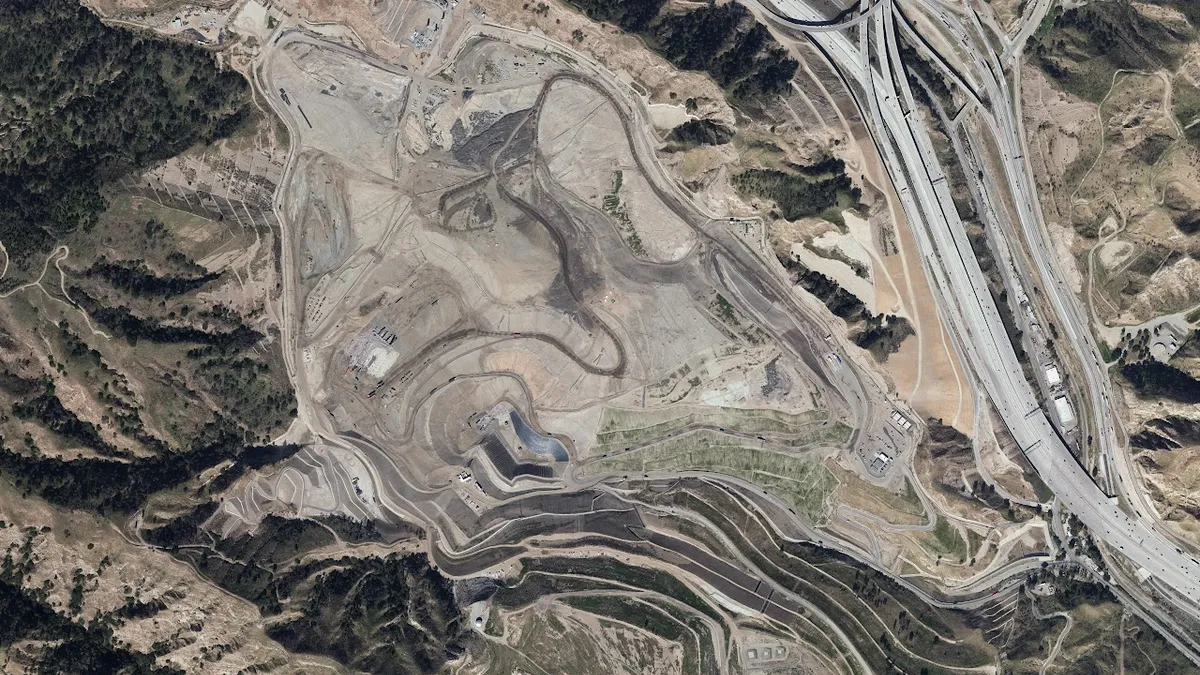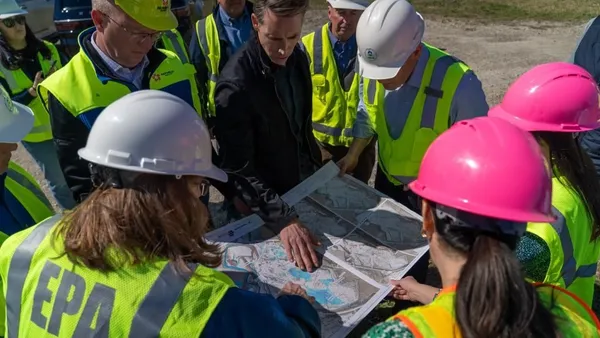Dive Brief:
- Republic Services subsidiary Browning-Ferris Industries of California sued Sunshine Gas Producers, its landfill gas facility operator, after the latter allegedly stopped paying fees for excess gas produced at Sunshine Canyon Landfill in Sylmar, California.
- Sunshine Gas Producers had agreed to make a one-time decision to either offtake excess gas or allow BFI to sell it to another operator, according to the suit filed in California’s Central District Court on April 25. After agreeing to take the gas, Sunshine Gas Producers made two required quarterly payments while designing and permitting an RNG facility onsite before notifying BFI it would not make further payments.
- Sunshine Gas Producers, which the lawsuit identifes as a subsidiary of DTE Energy and Archaea Energy, does not view its decision to cease payments and forfeit its right to the excess gas as a breach of contract, its attorney argues.
Dive Insight:
The lawsuit has financial consequences for Republic as it looks to take advantage of increasingly lucrative biogas markets by selling a resource that diminishes over time — landfill gas.
Republic Services and DTE Energy both declined to comment on the suit. Republic filed the lawsuit on April 25.
Republic is suing Sunshine Gas for breach of contract and seeking financial relief, including for the nearly $8 million payment it expected for the most recent excess gas fee, arguing Sunshine Gas “diminish[ed] the value of the landfill gas rights that Plaintiff must now attempt to market to other renewable energy developers.” It’s also seeking confirmation that the agreement is over.
The age of the landfill and excess gas matters to Republic because peak gas production from waste occurs five to seven years after waste is buried and declines as the waste ages, per research from the Centers for Disease Control & Prevention. The Sunshine Canyon landfill accepts about 8,300 tons of municipal solid waste every weekday and is scheduled to close by 2037, according to the South Coast Air Quality Management District.
On Dec. 7, 2007, the landfill owner and Sunshine Gas reached an agreement wherein the latter secured the right to build and operate a facility that would use the gas from the landfill. Sunshine Gas began operating a landfill-gas-to-electricity facility on site in 2014.
As part of the agreement, Sunshine Gas had a one-time-only option to either claim and use or not use any gas produced by the landfill in excess of what the LFGTE plant could capture. By 2020, BFI had sent Sunshine Gas a letter formally notifying them that the landfill was producing excess gas, which had to be used or flared.
The two sides came to an agreement in 2020 to build and permit a new renewable natural gas plant on site that would replace the LFGTE plant and take advantage of the excess gas in the next two years, or Sunshine Gas would pay a quarterly fee for the excess gas until the RNG plant was operational. By 2022, Sunshine Gas was still designing and permitting the RNG plant and made its first quarterly payment.
After making two consecutive quarterly payments, on April 20, Sunshine Gas notified BFI that it would not be making another payment but was still open to continued discussions about constructing the RNG plant. BFI responded, telling Sunshine Gas that not making a payment would be in violation of the agreement between the two parties.
In an email, Sunshine Gas’ attorney argued that “SGP has no obligation to pay, or to continue to pay, the Excess Gas Fee” but agreed that non-payment meant that it forfeited the rights to use the gas.















